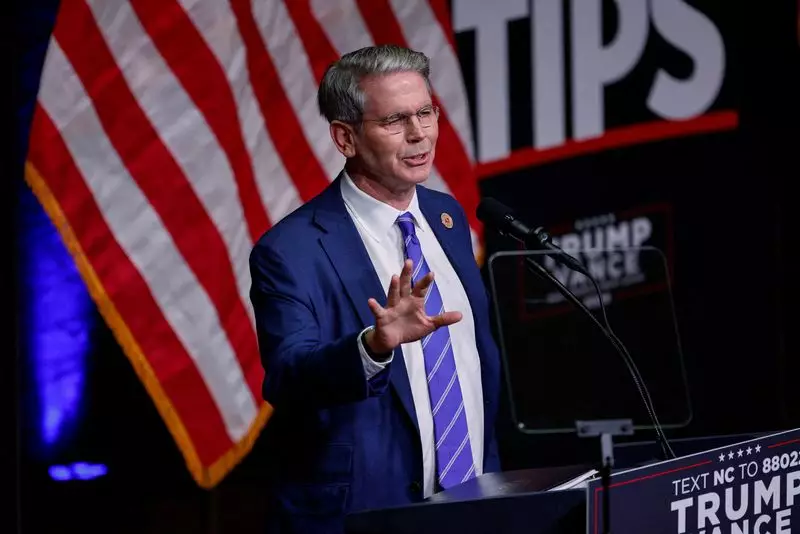In a significant turn of events, President-elect Donald Trump has named Scott Bessent as the next U.S. Treasury Secretary. This appointment concludes a tumultuous selection process characterized by the competitive nature of high-profile candidates, all vying for a role that holds substantial power over national economic policy and regulations. For Wall Street, Bessent’s nomination is seen as a signal of relief; he brings with him a wealth of financial expertise that could potentially usher in an era of tax reform and deregulation.
Bessent, now 62, has a background steeped in finance, having worked alongside industry giants like George Soros and Jim Chanos, and most recently managing his own hedge fund. His nomination stands out primarily due to his understanding of financial markets and the economic landscape, which is crucial as Trump aims to reshape global trade and enhance economic growth, primarily through tax cuts.
Wall Street’s anticipation surrounding Trump’s choice of Treasury Secretary is rooted in the wider implications for economic policy. Bessent’s advocacy for tax reform and deregulation is critical, especially in light of Trump’s plans to implement tariffs and tax breaks aimed at stimulating the economy. Economic analysts argue that Bessent’s influence could temper the aggressive tariff strategies Trump proposed during his campaign, thus lowering potential trade tensions that could arise from such measures.
Moreover, the reaction from investors has been predominantly optimistic following Trump’s announcement of Bessent. Many experts believe that his financial acumen positions him uniquely to refine and execute economic policies that prioritize market stability and growth. As he has articulated in previous writings, Bessent sees tax reform as a mechanism to foster higher growth and lower volatility, concepts that resonate well in the current economic climate.
Despite the positive reception of his nomination, Bessent faces a multitude of challenges as he steps into this pivotal role. Perhaps the most pressing issue is the management of federal deficits that are projected to balloon to nearly $8 trillion over the next decade. The fiscal implications of extending tax cuts without sufficient offsetting revenues could compound existing debt issues, prompting a need for robust economic management strategies.
Importantly, Bessent’s success in office will hinge on his ability to sell his vision of economic growth to both the administration and the broader public. He must navigate a complex political landscape where economic decisions are increasingly scrutinized by various stakeholders, ranging from investors to policymakers.
As the new treasury chief, Bessent will also play a crucial role in international economic strategy. He inherits responsibilities tied to U.S. financial sanctions, international lending institutions like the IMF and World Bank, and economic support initiatives for nations facing external threats—most notably Ukraine during its conflict with Russia.
Trump’s administration may diverge from established norms, especially regarding America’s financial commitment to foreign support. Bessent’s stance on these issues will be a critical test of his economic philosophy. Will he prioritize Trump’s agenda to limit foreign aid and focus on domestic issues, or maintain a more traditional approach that emphasizes American leadership on the global economic stage?
Rethinking the Treasury’s Role in Economic Management
Given Bessent’s reputation as a financier, his tenure as Treasury Secretary may also redefine the role of the Treasury in relation to the Federal Reserve. The relationship between these two critical economic entities has historically involved close collaboration, with regular meetings aimed at synchronizing monetary and fiscal policy.
Bessent has previously speculated about the potential for a “shadow” Fed chair, an idea aimed at creating continuity in policy direction. However, this concept has since been reconsidered, emphasizing the need for coherent and collaborative interaction between the Treasury and the Fed in navigating economic challenges.
Scott Bessent’s appointment as U.S. Treasury Secretary signifies a transformative moment for Trump’s administration. His extensive background in finance positions him as a potential catalyst for sweeping economic reforms while navigating pressing challenges concerning federal debt and international obligations. As the markets look on, observers remain cautious yet hopeful that Bessent’s blend of financial prowess and strategic vision will promote a thriving U.S. economy in an increasingly complex global landscape.


Leave a Reply